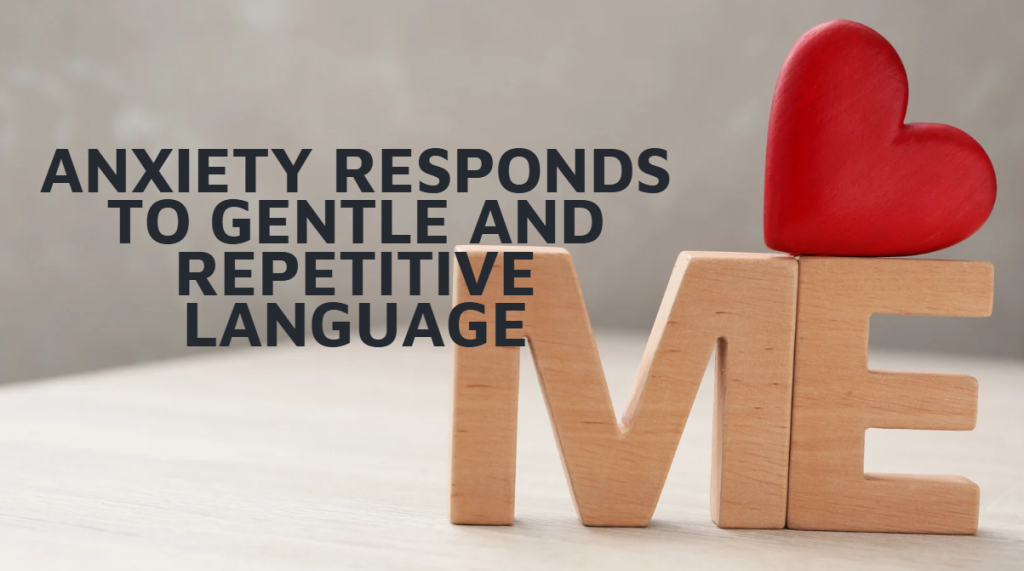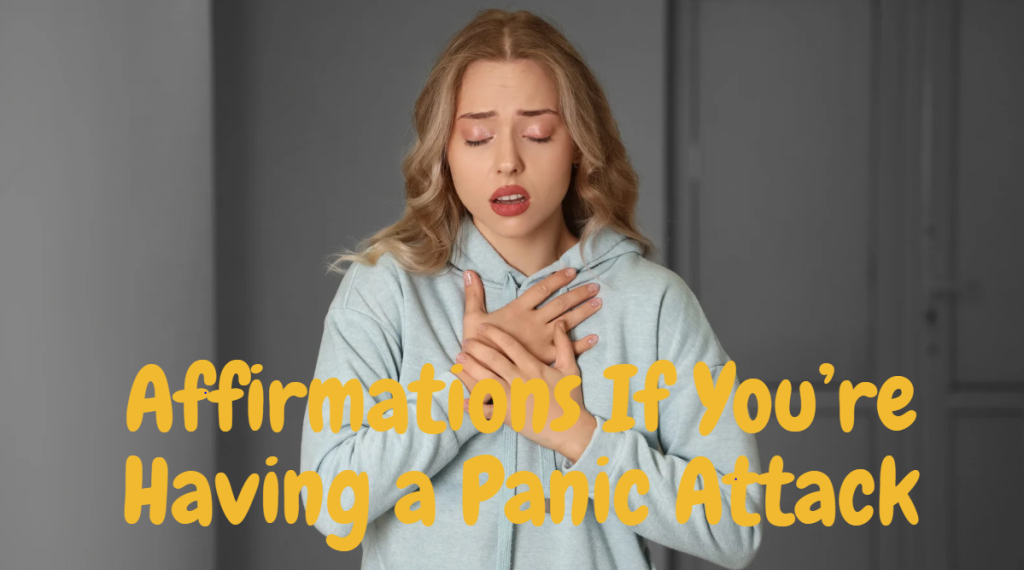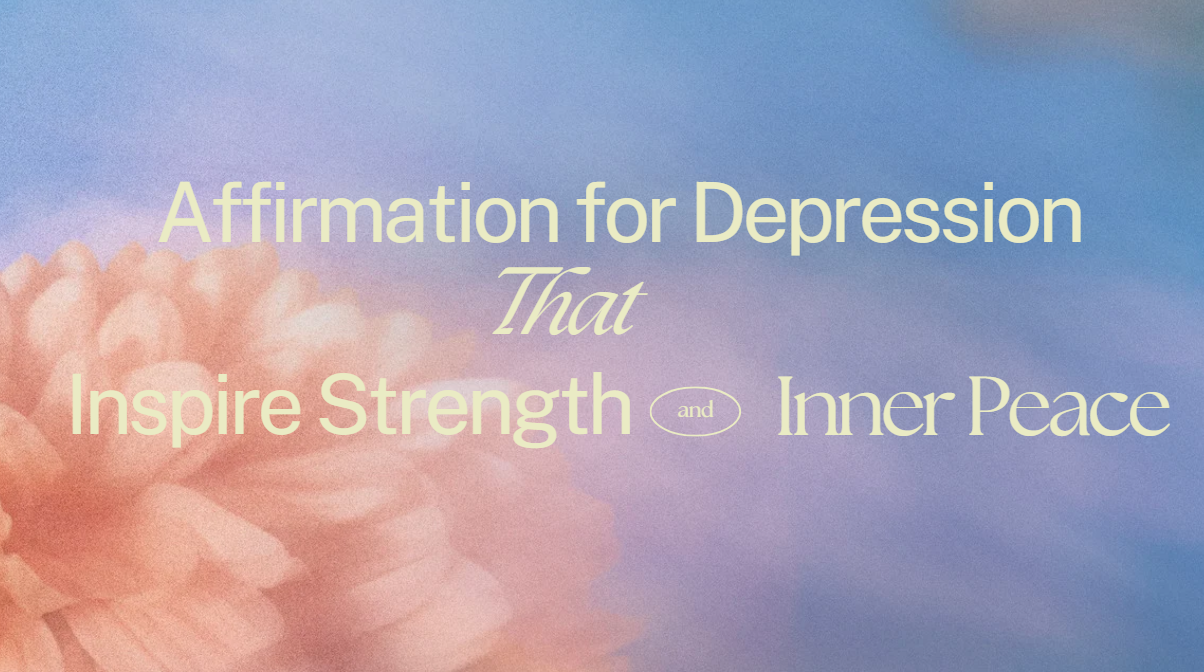Anxiety can show up when you least expect it—tightening your chest, quickening your heartbeat, crowding your thoughts. It can make even the simplest decisions feel overwhelming. And when anxiety becomes a daily companion, many people begin searching for natural tools that provide relief without judgment or side effects. One such tool? Affirmations for anxiety.
These gentle, purposeful phrases are more than trendy mantras. When chosen with care and spoken with intention, they can help rewire your thoughts, regulate your nervous system, and create a sense of emotional safety. If you’ve ever wondered whether words could help ease your anxiety, the answer is yes—when they speak to your heart.
In this article, you’ll discover what affirmations are, how they work, and how to craft ones that match your unique emotional experience. You’ll also receive 60 powerful affirmations specifically designed to help you breathe easier during anxious moments.
What Are Affirmations—and Can They Really Help With Anxiety?
Affirmations are short, powerful statements you repeat to yourself, either silently or aloud. They’re often used to reframe thoughts, boost self-confidence, and support mental wellness. But when it comes to affirmations for anxiety, their purpose is slightly different: to calm the nervous system, build emotional safety, and gently redirect unhelpful thought patterns.
While it might seem overly simplistic to say a few kind words and expect emotional relief, there’s solid evidence supporting the use of affirmations in managing stress and anxiety:
- Self-affirmation theory suggests that affirming your values helps reduce threat perception and emotional reactivity.
- Neuroscience research shows that repeated thoughts can influence neural pathways—meaning affirmations can shape your brain’s default responses over time.
- In mindfulness-based therapy, affirmations can function as grounding phrases, anchoring you back to the present moment when anxiety pulls you into fear-based future thinking.
But to be effective, affirmations must feel authentic. Generic or overly positive phrases may fall flat—or worse, trigger more self-doubt. That’s why choosing statements that resonate emotionally is key.
Why Anxiety Responds to Gentle, Repetitive Language

Anxiety thrives on chaos. It’s often fueled by fast-paced, catastrophic thoughts and a dysregulated nervous system. Repetitive, calming language works as a counterbalance—it introduces rhythm, predictability, and safety, all of which help shift your body out of “fight or flight.”
When you repeat a comforting affirmation like “I am safe right now,” you’re not just engaging your mind—you’re also signaling to your body that it can begin to relax. This activates the parasympathetic nervous system, which slows your heart rate, eases muscle tension, and supports deep breathing.
Think of affirmations as verbal deep breaths—not just calming your thoughts, but resetting your whole system from the inside out.
5 Signs You’re Using the Wrong Affirmations
Not all affirmations are created equal. If you’ve tried them before and felt nothing—or worse, felt more anxious—it could be because they didn’t align with your truth. Here’s how to know when an affirmation isn’t working for you:
- It feels fake or disconnected: Saying “I am perfectly calm” when your chest is tight may feel dishonest, increasing your stress.
- It tries to suppress rather than support emotions: Statements like “I shouldn’t feel anxious” only add shame to the mix.
- It includes toxic positivity: Overly cheerful phrases like “Everything is great!” can feel invalidating in moments of distress
- It doesn’t reflect your current state: Affirmations should start from where you are, not where you think you should be.
- It increases internal pressure: If an affirmation sounds like a demand (e.g., “I must be calm!”), it’s more stress-inducing than soothing.
The solution? Choose affirmations that are gentle, emotionally believable, and self-compassionate.
How to Create Affirmations That Truly Speak to Your Heart
The best affirmations are personal. They’re rooted in your emotional truth—not perfection, not pressure. Here’s how to create calming affirmations for anxiety that actually help you breathe easier:
1. Acknowledge What You’re Feeling
Start with a check-in. Ask yourself: What does my anxiety feel like right now? What do I need to hear?
If your anxiety says “I’m not safe,” a supportive affirmation might be:
“Even though I feel afraid, I trust that I’m okay in this moment.”
2. Use Compassionate Language
Avoid forceful, rigid phrases. Use soft words that create emotional safety: “It’s okay,” “I allow,” “I welcome,” “I can.”
3. Keep It Present-Tense and Grounded
Avoid future-focused fantasies. Instead of “I will never be anxious again,” try:
“I am learning how to feel calm in this moment.”
4. Anchor to a Core Value
Affirmations grounded in values—like courage, compassion, or patience—have more staying power than outcome-based statements.
For example:
“I choose courage over perfection.”
5. Pair With Breath and Stillness
Affirmations are more effective when they’re spoken slowly, with a pause and a breath. You can even place your hand on your heart or practice gentle tapping while repeating them.
60 Affirmations for Anxiety That Help You Breathe Easier

These affirmations are grouped into categories based on what you might be feeling. Choose a few that resonate most, and revisit them during stressful moments or as part of your daily mental health practice.
?️ When You Feel Overwhelmed
- “It’s okay to take a break.”
- “I don’t need to fix everything right now.”
- “I allow myself to pause and breathe.”
- “This feeling is temporary.”
- “My mind doesn’t have to race to be productive.”
- “Small steps are still progress.”
- “I can only do one thing at a time.”
- “I don’t have to carry it all alone.”
- “This moment is all I need to handle.”
- “Overwhelm is a signal, not a flaw.”
? When Your Thoughts Won’t Stop
- “I am not my thoughts—I am the awareness behind them.”
- “My thoughts don’t control me.”
- “It’s okay for my mind to slow down.”
- “I am safe, even with uncertainty.”
- “I choose to create space between thoughts.”
- “Every breath is a reset.”
- “Racing thoughts don’t mean danger.”
- “I can return to calm with each inhale.”
- “I give my thoughts room to pass through.”
- “My mind is learning to rest.”
? When You’re Being Hard on Yourself
- “I offer myself compassion instead of criticism.”
- “It’s okay to feel anxious—I am still worthy.”
- “I am doing the best I can.”
- “I don’t need to be perfect to be at peace.”
- “Anxiety does not define my character.”
- “My mistakes do not make me less lovable.”
- “I am more than what I get done.”
- “I forgive myself for struggling.”
- “I am human, not a machine.”
- “My worth is not measured by my calmness.”
⚡ When You’re Having a Panic Attack

- “This will pass—I’ve survived this before.”
- “I am safe, even if it doesn’t feel that way.”
- “My body is reacting, not breaking.”
- “I trust that this feeling is temporary.”
- “It’s okay to feel scared—I am still grounded.”
- “I breathe in calm, I breathe out fear.”
- “I can let go of the need to fight this.”
- “I allow this moment to soften.”
- “I focus on what I can control: my breath.”
- “This too shall pass.”
? When You Need Reassurance
- “I have survived every anxious moment so far.”
- “I am stronger than I feel.”
- “It’s okay to ask for help.”
- “There is no shame in needing support.”
- “I can do hard things with softness.”
- “Healing doesn’t mean perfection—it means presence.”
- “I trust my body knows how to come back to calm.”
- “This discomfort is not permanent.”
- “I can feel afraid and still move forward.”
- “I have what I need within me.”
☀️ When Starting or Ending the Day
- “Today, I welcome peace into my heart.”
- “I am grounded in the present moment.”
- “I let go of yesterday and begin anew.”
- “Tonight, I release the day with gratitude.”
- “Rest is not a reward—it’s a right.”
- “I give myself permission to relax fully.”
- “Sleep comes easily when I feel safe.”
- “My day doesn’t have to be perfect to be meaningful.”
- “Every morning is a fresh chance to begin again.”
- “I am at peace with today.”
The Best Times to Use Anxiety Affirmations

To get the most out of your affirmations, consistency matters more than perfection. You can repeat them daily, or simply use them as needed. Some of the best moments to introduce affirmations include:
- During morning routines, to set an intentional emotional tone for the day
- In moments of anxiety, especially paired with breathing or grounding techniques
- Before sleep, to calm the mind and release tension
- After difficult conversations, to reinforce self-worth
- During transitions, like driving, commuting, or waiting in line
You don’t need to memorize dozens—just pick two or three that speak directly to your emotional needs, and repeat them regularly with kindness.
You’re Not Trying to Fix Yourself—You’re Learning to Be With Yourself
Anxiety doesn’t mean you’re broken—it means your body and mind are responding to perceived threats, even if those threats aren’t obvious. Affirmations aren’t about pretending everything’s fine. They’re about offering yourself compassion and calm, even when things feel messy. By repeating words that reflect care, safety, and emotional truth, you’re giving your nervous system a new script—one that reminds you that it’s okay to slow down, to feel, and to breathe. You’re not striving for perfection—you’re simply learning how to stay grounded in moments of stress.
If you need deeper support beyond affirmations, help is available. Stay Healthy, LLC offers expert psychiatry in Tallahassee, FL, designed to meet you exactly where you are in your mental health journey. Whether you’re navigating chronic anxiety, panic attacks, or emotional overwhelm, their compassionate team can help you find the tools and treatment that work best for you. You deserve a care plan that’s rooted in understanding and science—not shame. To take the next step toward emotional wellness, call us at (850) 329-2932 and connect with someone who truly listens.











